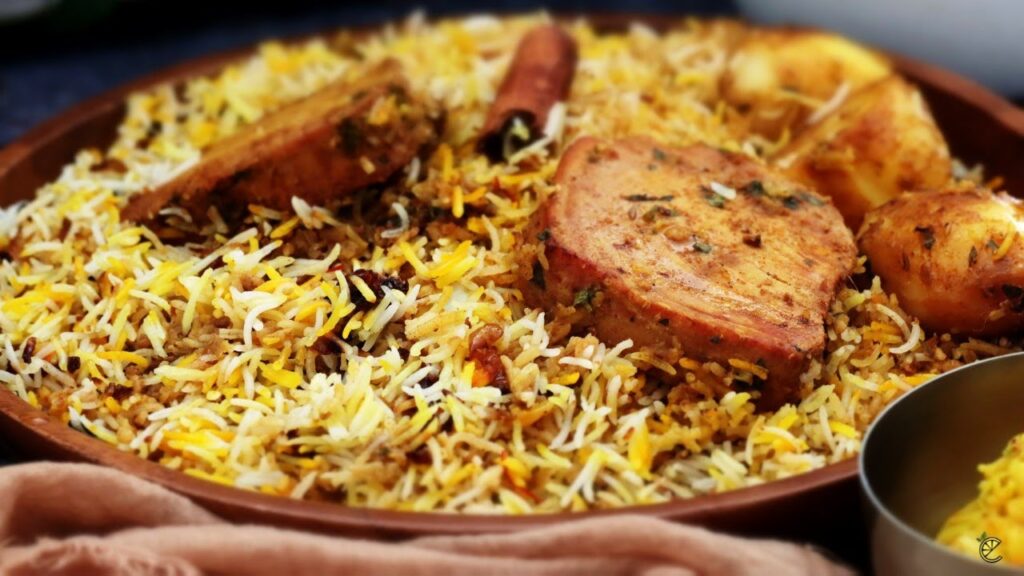

Spicy and flavoursome, served with achards and cucumber salad and spiced up with a chilli purée, Briani is undoubtedly one of the signature dishes of Mauritian cuisine;
But how did it get to our tizil?
First of all, a hint of etymology: the word biryani comes from the Persian word Pakka Birian, which means “fried before caisson”;
Biryani, a dish based on rice and spices, was introduced to northern India in the fifteenth century by the Mughals. It was known as Pakka Biryani because most of the ingredients are pre-cooked and then put together in a pot (deg) to cook over a slow fire (dum). The deg is sealed with a strip of dough and placed over a slow fire until the Briani is cooked to perfection. This method of cooking is called ‘dum pukht’: by preventing the steam from escaping, all the flavours of the spices are locked in for a very tasty result.
In the seventeenth century, Dhaka, the capital of Bangladesh, became the Mughal capital of the province of Bengal. The subadhars, the officers in charge of administering the province, came to Dhaka accompanied by their cooks. Some of these cooks remained in Dhaka after the departure of the subadhars and opened stalls selling Mughal cuisine.
In the nineteenth century, after the abolition of slavery and the need for labour on the sugar plantations in Mauritius, the English administration decided to use Indian workers. This is how Briani and Carry came to Mauritius, to the delight of our taste buds;
There are many variations on this dish, made with rice, potatoes, spices: saffron, cardamom, nutmeg, cinnamon, aniseed, cloves and fresh herbs; It can be prepared with chicken, beef, fish or even a vegetarian version with vegetables and soya;
Briani is a staple at weddings, family meals and religious celebrations, but it is also very popular as street food, sold from the boot of cars or in small stalls;
As I’m only Mauritian at heart, I wouldn’t presume to give you a recipe for Briani, a dish that I’ve never ventured to cook, because I’m convinced that for a Briani to be good, it has to be prepared by a Mauritian;

Share this article with your friends




© Copyright 2021 – Homes.mu by Eclipse Investments | Design with ❤ by Mataora.com
Soyez le premier à recevoir les nouveautés de Homes Magazines directement dans votre boite email.
